- Home
- Scott Mariani
The Pandemic Plot
The Pandemic Plot Read online
THE PANDEMIC PLOT
Scott Mariani
Copyright
Published by AVON
A Division of HarperCollinsPublishers Ltd
1 London Bridge Street
London SE1 9GF
www.harpercollins.co.uk
First published in Great Britain by HarperCollinsPublishers Ltd 2021
Copyright © Scott Mariani 2021
Cover design by Henry Steadman © HarperCollinsPublishers Ltd 2021
Cover photographs © Henry Steadman (figure) and Shutterstock.com (moors and helicopter)
Scott Mariani asserts the moral right to be identified as the author of this work.
A catalogue copy of this book is available from the British Library.
This novel is entirely a work of fiction. The names, characters and incidents portrayed in it are the work of the author’s imagination. Any resemblance to actual persons, living or dead, events or localities is entirely coincidental.
All rights reserved under International and Pan-American Copyright Conventions. By payment of the required fees, you have been granted the non-exclusive, non-transferable right to access and read the text of this e-book on screen. No part of this text may be reproduced, transmitted, down-loaded, decompiled, reverse engineered, or stored in or introduced into any information storage and retrieval system, in any form or by any means, whether electronic or mechanical, now known or hereinafter invented, without the express written permission of HarperCollins.
Source ISBN: 9780008365530
Ebook Edition © May 2021 ISBN: 9780008365547
Version: 2021-05-05
Discover the series you can’t put down …
‘A high level of realism … the action scenes come thick and fast. Like the father of the modern thriller, Frederick Forsyth, Mariani has a knack for embedding his plots in the fears and preoccupations of their time’
Shots Magazine
‘The plot was thrilling … but what is all the more thrilling is the fantastic way Mariani moulds historical events into his story’
Guardian
‘Scott Mariani is an ebook powerhouse’
The Bookseller
‘Hums with energy and pace … If you like your conspiracies twisty, your action bone-jarring, and your heroes impossibly dashing, then look no further. The Ben Hope series is exactly what you need’
Mark Dawson
‘Slick, serpentine, sharp, and very very entertaining. If you’ve got a pulse, you’ll love Scott Mariani; if you haven’t, then maybe you crossed Ben Hope’
Simon Toyne
‘Hits thrilling, suspenseful notes … a rollickingly good way to spend some time in an easy chair’
USA Today
‘Mariani constructs the thriller with skill and intelligence, staging some good action scenes, and Hope is an appealing protagonist’
Kirkus Reviews
‘If you haven’t read any Mariani before but love fast-paced action with a historical reference, maybe this one won’t be your last’
LibraryThing
‘A breathtaking ride through England and Europe’
Suspense Magazine
‘This is my first Scott Mariani book … and I totally loved it. It goes on at a good pace, and for me Ben Hope was brilliant, the ultimate decent good guy that you are rooting for’
AlwaysReading.net
‘Scott Mariani writes fantastic thrillers. His series of Ben Hope books shows no sign of slowing down’
Ben Peyton, actor (Bridget Jones’s Diary, Band of Brothers, Nine Lives)
‘A really excellent series of books, and would make a wonderful television series as well!’
Breakaway Reviews
‘Scott Mariani seamlessly weaves the history and action together. His descriptive passages are highly visual, and no word is superfluous. The storyline flows from beginning to end; I couldn’t put it down’
Off the Shelf Books
Contents
Cover
Title Page
Copyright
Discover the series you can’t put down …
Prologue
Chapter 1
Chapter 2
Chapter 3
Chapter 4
Chapter 5
Chapter 6
Chapter 7
Chapter 8
Chapter 9
Chapter 10
Chapter 11
Chapter 12
Chapter 13
Chapter 14
Chapter 15
Chapter 16
Chapter 17
Chapter 18
Chapter 19
Chapter 20
Chapter 21
Chapter 22
Chapter 23
Chapter 24
Chapter 25
Chapter 26
Chapter 27
Chapter 28
Chapter 29
Chapter 30
Chapter 31
Chapter 32
Chapter 33
Chapter 34
Chapter 35
Chapter 36
Chapter 37
Chapter 38
Chapter 39
Chapter 40
Chapter 41
Chapter 42
Chapter 43
Chapter 44
Chapter 45
Chapter 46
Chapter 47
Chapter 48
Chapter 49
Chapter 50
Chapter 51
Epilogue
Keep Reading …
About the Author
By the Same Author
About the Publisher
Special thanks to Miriam and Marco, great friends and scientists extraordinaire, for figuring out how the bad guys might actually have done it …
PROLOGUE
Staffordshire, 1924
Viewed from the road, the splendour of the Bridgnorth Estate seemed to go on for ever. Its thousand or so acres were ringed by a great stone wall that afforded the occasional peep at the rambling country parkland and fine gardens, at whose heart stood the noble old seventeenth-century house.
Wilfred Grey had spent the last six hours travelling here, having departed from his small cottage in rural Northumberland early that summer’s morning. As a humble schoolteacher on the meagrest of salaries, his sole means of transportation was the same rattly Francis-Barnett motorcycle and sidecar combination on which he and his wife Violet had fled London and moved north two years earlier. Violet had done all she could to try to prevent him from coming here today, to no avail. He was weary and stiff after so many hours in the saddle, but as his long journey came to an end, Wilfred’s mission was just getting underway and he was determined to see it through to the bitter end.
Wilfred’s purpose for coming here meant that he couldn’t just ride in through the gates of the estate. Finding a leafy little lane that skirted along the westernmost perimeter he parked the combination where it wouldn’t easily be noticed. He removed his leather goggles and riding gauntlets and left them in the sidecar, but kept on his long waxed cotton coat despite the warmth of the afternoon. The heavy steel weight in his coat pocket slapped against his right hip as he waded through the long grass along the foot of the stone wall. He soon came to the shady spot where a tall, spreading oak tree inside the grounds overhung the top of the wall and made it easy for a young man of his slender build and agility to clamber over.
The nervousness that had been gnawing at Wilfred throughout his journey quickly mounted as he made his way deeper into the grounds. He kept to the shadows and the bushes wherever possible, trying to move as stealthily as he could. He passed an estate worker’s cottage where two men were shoeing a horse, but were too preoccupied to notice him as he slipped by.
Further on, he could hear the barking of a big dog somewhere nearby, but thankfully there was no sign of it. If not for his beloved Violet anxiously waiting for him at home, Wilfred wouldn’t have cared if they let the brute loose on him once his mission was accomplished. Violet was the only reason why he gave a damn for his own skin.
He was sweating as he approached the big house. The Webley service revolver in his coat pocket seemed to become heavier and heavier. He hadn’t carried a weapon since coming home from the war six years ago, at the close of that nightmarish period of his life when the real man seemed to have withered away inside him, and all that was left was a frightened ghost called Lance Corporal Wilfred Grey. An identity he’d oh-so gratefully left behind him, along with the detested uniform, resuming the gentler occupation he’d followed before that damned conflict began. The gun Wilfred had brought with him here today had been purchased cheap from some ruffian he’d met in a back alley behind a pub the previous evening. Its cylinder was loaded with six cartridges. He prayed he wouldn’t need that many to achieve his purpose.
Wilfred hated the gun. It was a bring-back from the war, scuffed and scratched with the marks of combat, and to even look at it was to bring a flood of terrible memories back to his mind. How ironic, he reflected, that after all those experiences that had made him vow never to touch a weapon again, fate should have brought him here, to this place, to kill a man he had never met.
But so be it. Some things were more important than his own personal feelings. Duty must be done. It would be murder, yes. But nobody could have called it cold-blooded, still less unjustified. The taking of this one life paled into insignificance next to the horrors of suffering the man had inflicted on millions of innocent people.
While Wilfred’s back yard at home was a modest scrap of ground on which he struggled to grow a few potatoes and cabbages, the Bridgnorth Estate’s grand gardens were meticulously tended by full-time staff. Wilfred watched from the cover of a hedge as a gardener tended to a riot of many-coloured roses in a bed beneath an open ground-floor window of the house. The gardener was a stooped old man in hobnail boots, dungarees and a flat cap. He moved like a tortoise and seemed to take for ever to prune a few stems. At last, the gardener picked up his bucket and tool box and moved on. Shaking badly with nerves and barely daring to breathe, Wilfred remained frozen in his hiding place until the old man had disappeared around the corner of the house.
Now was the time. His heart pounding like a Lewis gun, Wilfred broke away from the hedge and dashed across the lawn to the open window. He waded through the rose bed, trampling the blooms and ignoring the thorns that ripped at his trouser legs. The open window had a thick stone ledge that jutted proud of the wall a couple of feet above his head. He jumped up with both arms raised high, hooked his fingers over the rough stone, dangled for a moment and then scrabbled with his feet to heave and clamber his way over the windowsill. He landed with a soft thud inside the house and instantly sprang to his feet, tearing the revolver from his pocket. He’d had no idea what room of the house he would enter; for all he knew, he’d been about to come face to face with his intended victim.
But the grand music room in which he found himself was unoccupied. Wilfred gazed around him at the elegant furnishings and the magnificent collection of dozens of antique instruments – lutes, violins, harps, highly ornate spinets and harpsichords – that he couldn’t have hoped to afford if he taught English twenty-four hours a day for the next hundred years. To be a witness to the living standard obviously enjoyed by such a corrupt and depraved villain when decent and innocent people were left to suffer in conditions of abject poverty only fuelled Wilfred’s anger even more, and firmed his resolve.
Wilfred stalked across to the door and peeked out into a lavish hallway with gleaming marble floor and fine artwork. Over the sonorous tick-tock of a magnificent grandfather clock came the echoing footsteps of a servant whom Wilfred took to be a butler, dressed in a striped waistcoat and carrying a fine china tea set on a silver tray. The butler was an older man, but moved with the ramrod-straight bearing of a British army officer. Many NCOs had retired into service after the war. The butler paused to knock at a door across the hallway, waited a moment and then disappeared inside the room. A minute or two later he re-emerged, the tray now empty, and walked slowly back the way he’d come.
When he was gone, Wilfred gulped a huge breath, eased the door open and tiptoed to the room across the hall. He was dizzy with fear and for a fleeting moment wondered whether he must have lost his sanity, to be doing this. But there was certainly no turning back now.
The room in which he now found himself was a large study filled with bookcases and sunlight that streamed in from tall French windows. The room smelled of aromatic pipe tobacco and burnished leather. The china tea set that the butler had brought in was neatly arrayed on an enormous desk. The man Wilfred had come here to kill was standing with his back to the doorway, reaching up to a bookcase for one of the many leather-bound volumes that crowded the shelves. Hearing the door open, he turned to see his unexpected visitor enter the room. Wilfred recognised him from the single photograph he’d seen. The man was in his early forties, with jet black hair that he wore unfashionably long. His white shirt was open at the neck to reveal a red silk cravat and his patent leather shoes gleamed in the sunlight from the window. He had cold, pale eyes that gazed disinterestedly at Wilfred. Other than a slight pause in his movements he didn’t seem especially perturbed by the intrusion. Not even at the sight of the large Webley revolver in Wilfred’s hand.
Wilfred closed the door behind him and stepped deeper into the room, desperately trying to hide his near-paralysing terror. By contrast the man remained quite calm. He laid down the book he’d chosen from the bookcase. Stepped casually to the desk, picked up his teacup by the saucer and took a dainty sip. He raised an eyebrow at Wilfred and said, ‘I don’t believe I was expecting a visitor at this hour.’
‘I didn’t want you to know I was coming,’ Wilfred managed to reply. His voice was so strained with nerves that it sounded like the croak of a dying tuberculosis patient.
The man nodded. ‘In that case it would appear that my security arrangements leave something to be desired. How may I be of service to you, sir?’
Wilfred would have preferred that the man didn’t speak to him. All he wanted was to get this awful thing done, and leave as quickly as he could. He raised the revolver. His right hand was shaking so badly that he needed to steady it with his left.
‘You know why I’m here,’ he croaked. ‘It’s time for you to answer for the terrible things you’ve done.’
The man smiled. ‘I see. Has a jury of my peers found me guilty of some crime that I’m unaware of having committed?’
Wilfred took another step forwards, hoping that his closeness to his target would help his shaky aim to hit its mark. The gun felt heavier than a truck engine. His eyes stung from the sweat that poured down his brow.
‘Did you really think you could get away with it?’ he rasped. ‘Did it never cross your mind that someone would find out?’
‘So you’ve come to murder me, have you?’
‘You’re the murderer, not me.’
‘Really? I must be suffering from somnambulism. Aside from those martial duties I have had the honour of carrying out in the service of King and country, I don’t recall having harmed a single soul in my life.’
‘You killed my family!’
The man took another sip of tea, gazing at the gun as though it were a feather duster in Wilfred’s hand. ‘I’m afraid you must be confused, my dear fellow. I don’t know you from Adam and I’ve never met your family. But as you seem so certain that I’m the culprit behind these terrible crimes, I suppose you had better do what’s necessary and pull that trigger. That’s if you know how.’
‘I fought in the war. I know how to shoot.’
‘Then get a move on, you bloody fool. The longer you wait, the harder you make it for both of us.’
W
ilfred hooked his thumb around the hammer of the revolver and yanked it back until it locked into position. He tried to square the sights on the man’s chest, but they wouldn’t stay still and his eyesight kept blurring. He took a hand from the gun to wipe the sweat from his eyes. Clenching his teeth, he tightened his finger against the trigger but it seemed rigid, as though something was blocking it. Wilfred knew the blockage was just a figment of his own mind. He tried harder, but the gun only shook worse.
A knowing smile spread across the man’s lips. ‘Not quite the same when you’re not taking pot-shots across no-man’s land at some faceless enemy in a trench half a mile away, is it?’
‘You filthy bastard.’
The man put down his teacup. ‘Look, old chap. There must be another way to settle this. Whatever wrongs you’re so convinced I’ve committed against you and your family, I’m quite happy to compensate you for them.’ As he spoke he moved around the corner of the desk, unlocked a drawer and slid it open. ‘Regrettably I don’t keep a great deal of cash in the house, but I can write you a personal cheque. How does a thousand pounds sound to you? If you don’t mind my saying so, you look as though you could use it.’
If Wilfred had been paying attention instead of desperately trying to keep control of his tattered nerves, he might have noticed the way the man was standing with his right hand hovering close to the open drawer. He might have wondered whether it was a chequebook in there, or something else. He might have seen the man’s body language as a warning, but he did not.
‘I don’t want your stinking money,’ Wilfred spat back at him.
‘Then perhaps you’d care to enlighten a condemned man as to the reason for his impending execution. Because I’m afraid I have no idea what you’re talking about, or what grudge you could possibly hold against me. I’m a simple biochemist. Someone who has devoted his entire civilian life to the pursuit of science and the advancement of his fellow man’s health and wellbeing.’
Wilfred took one hand away from the gun while he reached inside his coat and tore out the photographic prints he was carrying rolled up in his pocket. A keen amateur photographer, he had taken the images himself on his Pocket Kodak and created the prints in the tiny space he used as a developing room at home. Most of the pictures he took were of nature, or of his beloved Violet and the children. These four were different. They were pictures of documents.

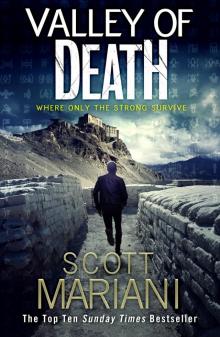 Valley of Death
Valley of Death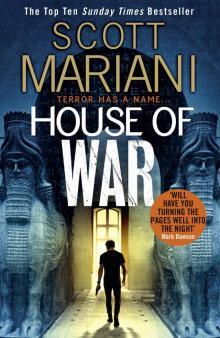 House of War
House of War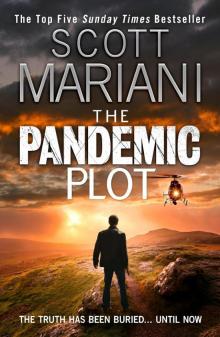 The Pandemic Plot
The Pandemic Plot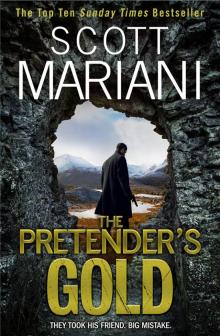 The Pretender's Gold
The Pretender's Gold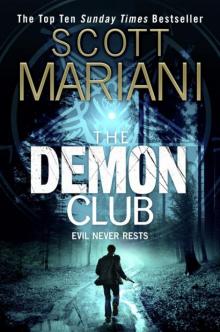 The Demon Club
The Demon Club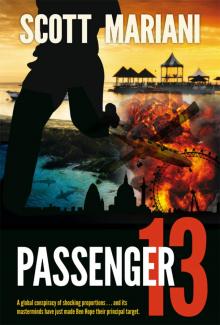 Passenger 13 (Ben Hope eBook originals)
Passenger 13 (Ben Hope eBook originals)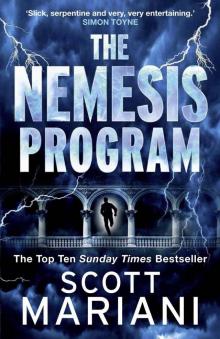 The Nemesis Program_Ben Hope
The Nemesis Program_Ben Hope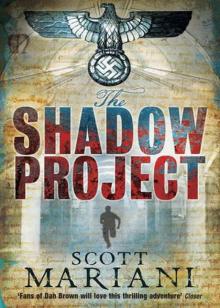 The Shadow Project
The Shadow Project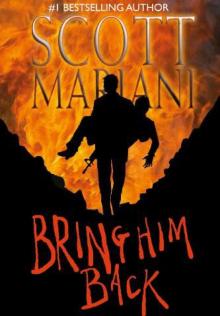 Bring Him Back
Bring Him Back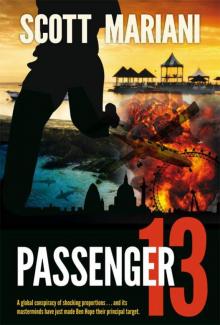 Passenger 13
Passenger 13 Sacred Sword (Ben Hope 7)
Sacred Sword (Ben Hope 7)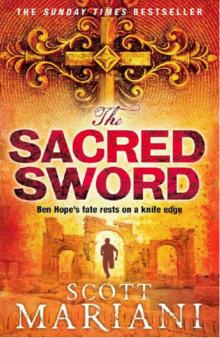 The Sacred Sword (Ben Hope 7)
The Sacred Sword (Ben Hope 7)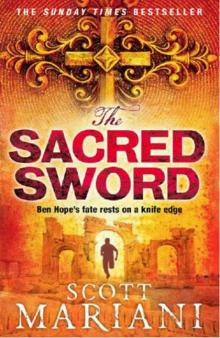 Sacred Sword
Sacred Sword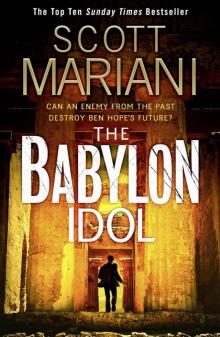 The Babylon Idol
The Babylon Idol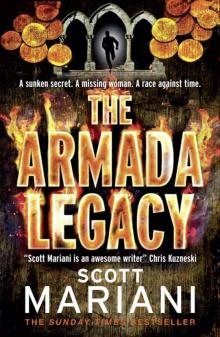 The Armada Legacy
The Armada Legacy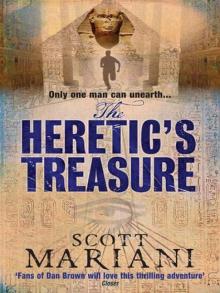 The Heretic's Treasure
The Heretic's Treasure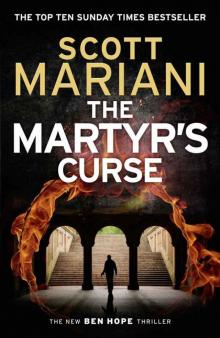 The Martyr’s Curse
The Martyr’s Curse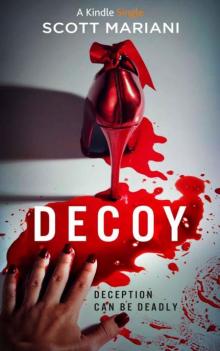 DECOY (Kindle Single)
DECOY (Kindle Single)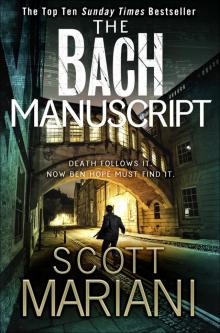 The Bach Manuscript
The Bach Manuscript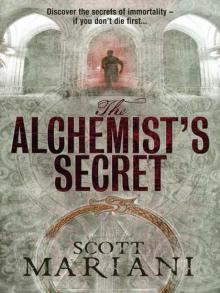 The Alchemist's Secret
The Alchemist's Secret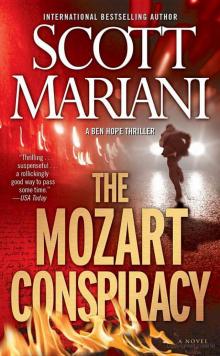 The Mozart Conspiracy: A Novel bh-2
The Mozart Conspiracy: A Novel bh-2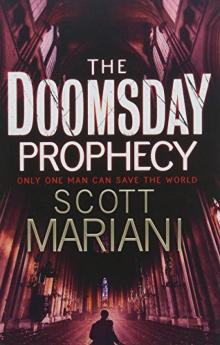 The Doomsday Prophecy
The Doomsday Prophecy The Ben Hope Collection: 6 BOOK SET
The Ben Hope Collection: 6 BOOK SET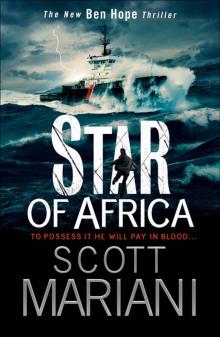 Star of Africa (Ben Hope, Book 13)
Star of Africa (Ben Hope, Book 13)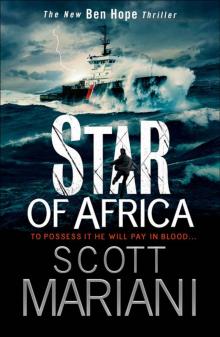 Star of Africa
Star of Africa The Forgotten Holocaust (Ben Hope, Book 10)
The Forgotten Holocaust (Ben Hope, Book 10)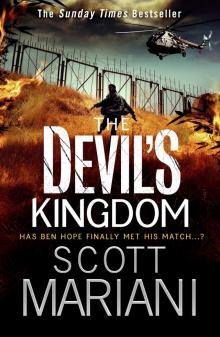 The Devil's Kingdom
The Devil's Kingdom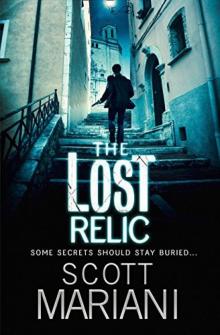 The Lost Relic
The Lost Relic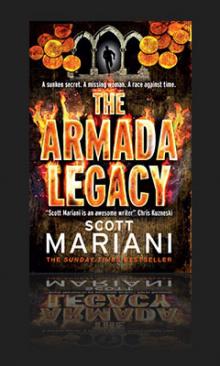 The Armada Legacy bh-8
The Armada Legacy bh-8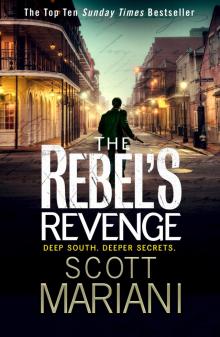 The Rebel's Revenge
The Rebel's Revenge The Forgotten Holocaust
The Forgotten Holocaust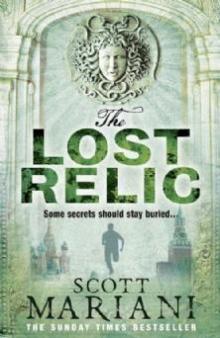 The Lost Relic bh-6
The Lost Relic bh-6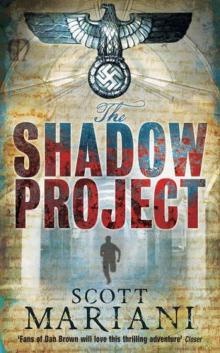 Ben Hope 05 - The Shadow Project
Ben Hope 05 - The Shadow Project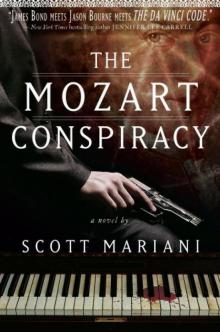 The Mozart Conspiracy
The Mozart Conspiracy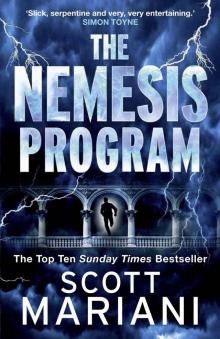 The Nemesis Program
The Nemesis Program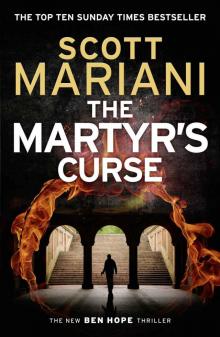 The Martyr’s Curse (Ben Hope, Book 11)
The Martyr’s Curse (Ben Hope, Book 11)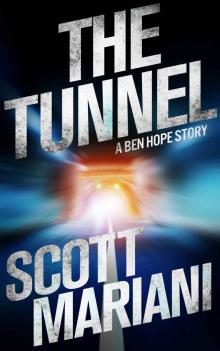 THE TUNNEL: A Ben Hope Story
THE TUNNEL: A Ben Hope Story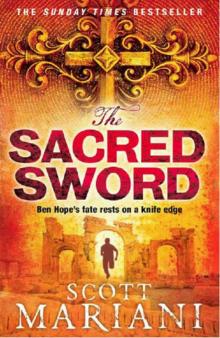 The Sacred Sword bh-7
The Sacred Sword bh-7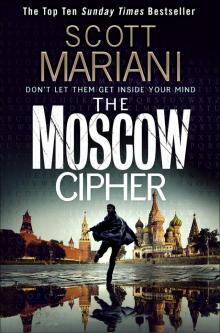 The Moscow Cipher
The Moscow Cipher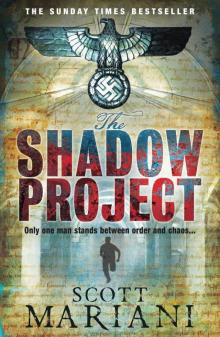 The Shadow Project bh-5
The Shadow Project bh-5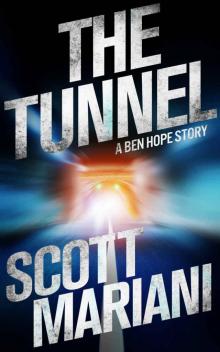 The Tunnel
The Tunnel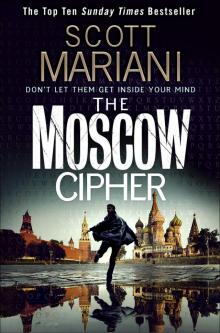 The Moscow Cipher (Ben Hope, Book 17)
The Moscow Cipher (Ben Hope, Book 17)